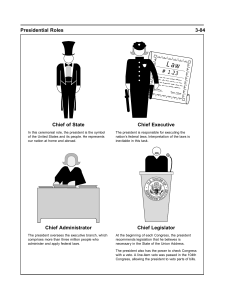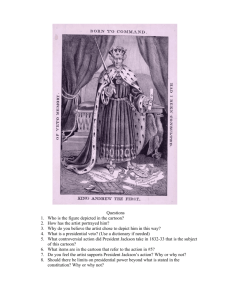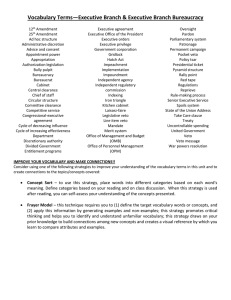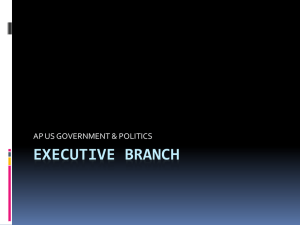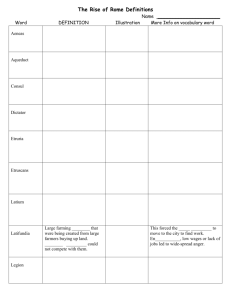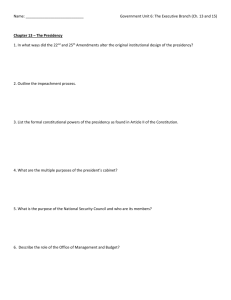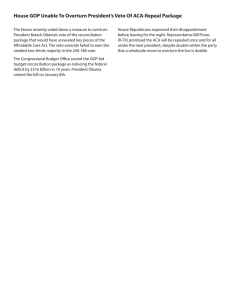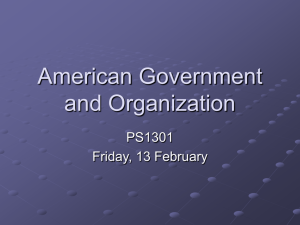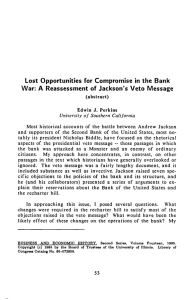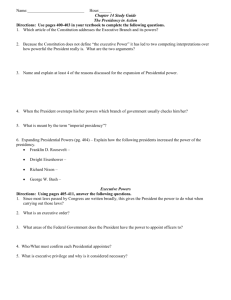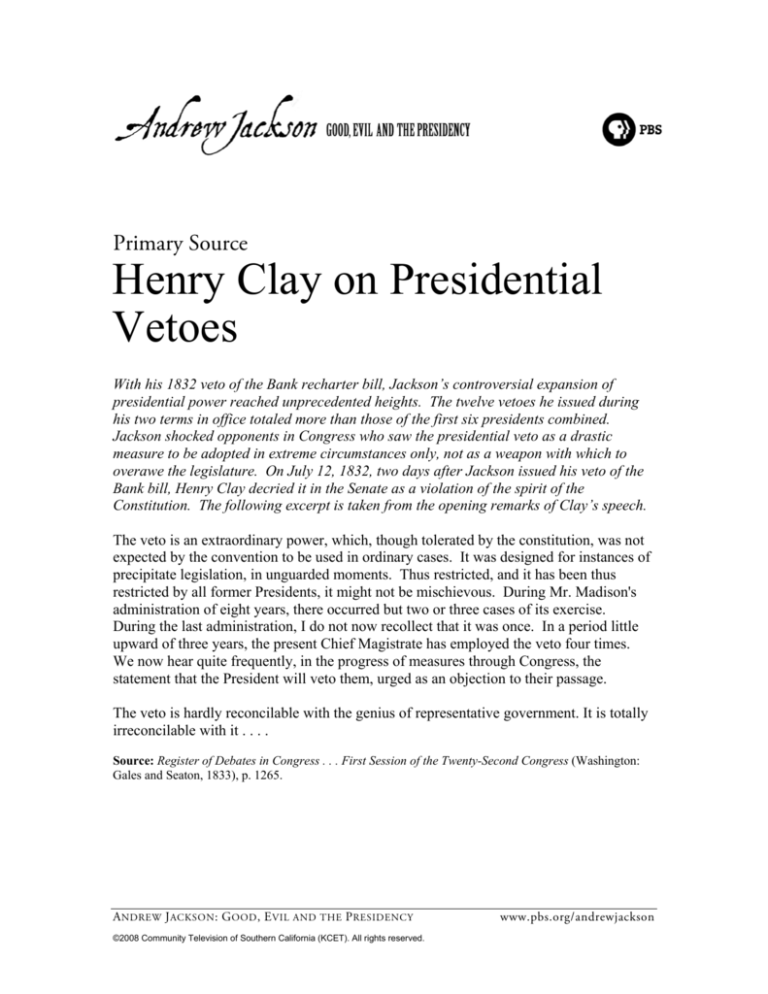
Primary Source
Henry Clay on Presidential
Vetoes
With his 1832 veto of the Bank recharter bill, Jackson’s controversial expansion of
presidential power reached unprecedented heights. The twelve vetoes he issued during
his two terms in office totaled more than those of the first six presidents combined.
Jackson shocked opponents in Congress who saw the presidential veto as a drastic
measure to be adopted in extreme circumstances only, not as a weapon with which to
overawe the legislature. On July 12, 1832, two days after Jackson issued his veto of the
Bank bill, Henry Clay decried it in the Senate as a violation of the spirit of the
Constitution. The following excerpt is taken from the opening remarks of Clay’s speech.
The veto is an extraordinary power, which, though tolerated by the constitution, was not
expected by the convention to be used in ordinary cases. It was designed for instances of
precipitate legislation, in unguarded moments. Thus restricted, and it has been thus
restricted by all former Presidents, it might not be mischievous. During Mr. Madison's
administration of eight years, there occurred but two or three cases of its exercise.
During the last administration, I do not now recollect that it was once. In a period little
upward of three years, the present Chief Magistrate has employed the veto four times.
We now hear quite frequently, in the progress of measures through Congress, the
statement that the President will veto them, urged as an objection to their passage.
The veto is hardly reconcilable with the genius of representative government. It is totally
irreconcilable with it . . . .
Source: Register of Debates in Congress . . . First Session of the Twenty-Second Congress (Washington:
Gales and Seaton, 1833), p. 1265.
A NDREW J ACKSON : G OOD , E VIL
AND THE
P RESIDENCY
©2008 Community Television of Southern California (KCET). All rights reserved.
www.pbs.org/andrewjackson



